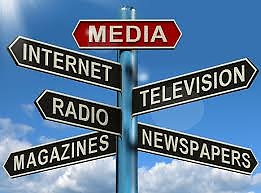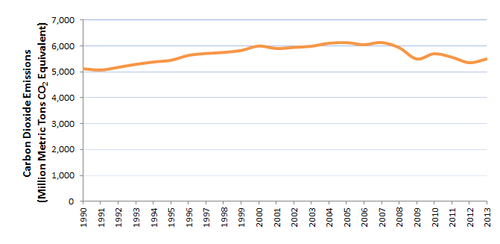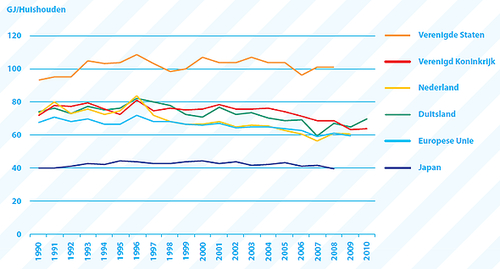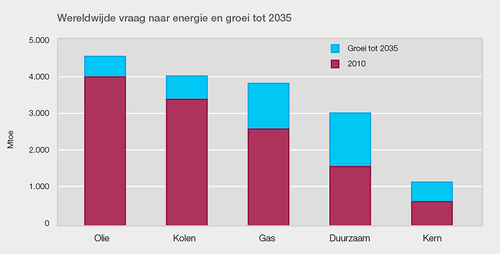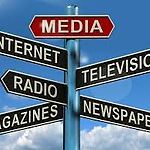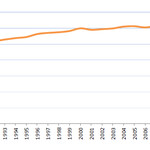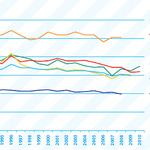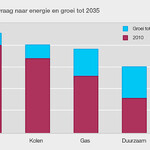We in the Netherlands are surrounded by media influences all day. We can look at nu.nl, buy newspapers or even receive them in our mailbox every morning. If we turn on the television there is a nearly constant stream of news differentiating from Al Jazeera to BBC world news, and NPO nieuws to RTL Z. Everything is available at all times, and everything is open for discussion due to social media platforms.
Considering this availability it would make sense to see loads of innovation, which would indicate people taking some form of individual responsibility. Individual responsibility as we have discussed in class using the example of people opening their homes for refugees, while using the media to make this more popular. In my opinion this is a very good example of people deciding to take some individual responsibility. When we look at other situations however, individuals are not so quick to do something.
For example climate change: In a study from Kirilenko & Stepchenkova (2014) tweets conserning climate change were searched and analysed in the duration of 2012 1,8 million tweets were found (in English, German, Russian, Portuguese, and Spanish). While complaining about global warming, people continue to drive their SUV’s , turn on their air conditioning or heater and shower for long periods of time. When we look at the figures, we see that the demand for energy is increasing instead of decreasing. In 2012 energy use was increased with 3,4 percent in comparison to 2000. We as consumers knowing the effects to be bad continued our patterns of energy use (CBS, 2013 ; Unknown author, 2014).
When does our sense of individual responsibility kick in? When looking at our own action and that of someone else we usually do not blame ourselves due to the fundamental attribution error: our personal situation causes a pattern in which we consider ourselves not responsible. However when somebody else does or does not do something that we disagree with it is due to this person or group (Forsyth, 2014). For example the government might be considered lazy or negligent if they do not reduce the carbon dioxide emission or find alternative energy sources. The government needs to take its collective responsibility according to the people. But when the government takes this collective responsibility, it could also lead to more inactiveness of the people. The media has a big part in this for (in general) being the main source of information for the population.
The media can in some points look at a situation from a rights- or sometimes even merit based perspective: The media often looks for a stakeholder to blame. In the case of a rights based perspective the causal responsibility is all that matters, the merit based perspective also takes moral responsibility, the bad intention, into account (Doorn, 2012). In the case of global warming the focus was on the rights based perspective. The governments have the same perspective: they also look for the stakeholders, in this case countries and companies, that carry the biggest part of the causal responsibility.
But when there are specific stakeholders to blame, which are blamed by the governments and highlighted by the media. And when we see and hear about these stakeholders, which is even more reason not to blame ourselves, a question will rise: why should we as individuals take up individual responsibility?
On the bright side of things, I see the (social) media as a mean to address individuals to take their individual responsibility. Regular media can make people aware of situations and ways to deal with these. Social media can help people find each other to create social movements. Social movements are long term goal based groups who attempt to change a current situation or problem and have the goal to make a difference ( Forsyth, 2014). In the end I think these groups and a sufficient amount of information will help us all to face our problems and take our responsibility.
Carbon Dioxide Emission from 1990 till 2013. From the United States Environmental Protection Agency.
Average Energy use of households from 1990 till 2010. Found on: Kennislink.nl
The “World Energy Outlook 2011” From the “Internationaal Energie Agentschap” Found on http://aardgas-in-nederland.nl/de-toekomst-van-aardgas/aardgasreserves-en-verbruik/
References:
- CBS. (2013). Energieverbruik hoger in 2012. Centraal Bureau voor de Statistiek. Source found at: http://www.cbs.nl/nl-NL/menu/themas/industrie-energie/publicaties/artikelen/archief/2013/2013-3816-wm.htm
- Doorn, N. (2012). Responsibility Ascriptions in Technology Development and Engineering: Three Perspectives. Science and Engineering Ethics, 18, 69-90. DOI 10.1007/s11948-009-9189-3
- Forsyth, D. R. (2014). Group Dynamics. Belmont, CA: Wadsworth Cengage Learning.
- Kirilenko, A. P., & Stepchenkova, S. O. (2014). Public microblogging on climate change: One year of Twitter worldwide. Global Environmental Change-Human and Policy Dimensions, 26, 171-182. DOI: 10.1016/j.gloenvcha.2014.02.008
- Unknown author. (2014). Energietrends 2014. ECN, Energie-Nederland en Netbeheer Nederland.

